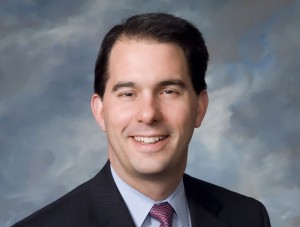Where gaming-related issues were concerned, there was one big race last night and a
bunch of also-rans. The main event, of course, was Massachusetts, where casino  repeal went down to defeat 60% to 40%, good news for Penn National Gaming, hard at work on its Plainville racino, as well as for MGM Resorts International and Wynn Resorts. Having lost big-time, Repeal the Casino Deal will hopefully go away quietly. For instance, support in Springfield was even higher (64%) yesterday than last year (58%) and even West Springfield, which had rejected casinos earlier, flipped to the “aye” category. Wrote the Springfield Republican‘s Ron Chimelis, “the public has spoken twice on the subject, and given the same answer each time. If we are to believe in the value of democracy, we cannot dispute that the will of the people is to give MGM its chance.”
repeal went down to defeat 60% to 40%, good news for Penn National Gaming, hard at work on its Plainville racino, as well as for MGM Resorts International and Wynn Resorts. Having lost big-time, Repeal the Casino Deal will hopefully go away quietly. For instance, support in Springfield was even higher (64%) yesterday than last year (58%) and even West Springfield, which had rejected casinos earlier, flipped to the “aye” category. Wrote the Springfield Republican‘s Ron Chimelis, “the public has spoken twice on the subject, and given the same answer each time. If we are to believe in the value of democracy, we cannot dispute that the will of the people is to give MGM its chance.”
“You’re not going to get people excited if it’s not in their backyard,” said Boston College casino expert Rev. Richard McGowan and the planned casinos will be in very few back yards, undoing the dynamic that enabled no-name casino opponents to flip several cities against casinos in the last two years. Besides, as Central Connecticut State University political science professor Jerold Duquette pointed out, the casinos had a hard-to-rebut contention: job creation. “You can’t discount the value of that affirmative casino argument,” he told the Boston Globe.
Next door, at Newport Grand, there won’t be any table games. Statewide, the measure passed with 57% support. However, it also had to win in Newport and opposition there was even greater than two years ago. Rhode Island voters also voted by a two-to-one margin  that local approval is necessary for the relocation of any casino. The vote scotches the sale of Newport Grand to a trio of investors who billed themselves as Jobs for Newport. It also ixnays $40 million in renovations. Proponents futilely outspent the opposition 4:1 and painted the latter as “wealthy out-of-towners who don’t care about property tax relief for you. And they don’t care about your neighbors’ jobs.” Frustrated buyer Joseph R. Paolino Jr. painted a bleak future for Newport Grand, citing the onset of casinos in Massachusetts. The Newport Grand issue remains to be litigated, as some constituents are challenging whether the ballot question satisfies the requirement for two separate votes.
that local approval is necessary for the relocation of any casino. The vote scotches the sale of Newport Grand to a trio of investors who billed themselves as Jobs for Newport. It also ixnays $40 million in renovations. Proponents futilely outspent the opposition 4:1 and painted the latter as “wealthy out-of-towners who don’t care about property tax relief for you. And they don’t care about your neighbors’ jobs.” Frustrated buyer Joseph R. Paolino Jr. painted a bleak future for Newport Grand, citing the onset of casinos in Massachusetts. The Newport Grand issue remains to be litigated, as some constituents are challenging whether the ballot question satisfies the requirement for two separate votes.
Both Pinnacle Entertainment and Isle of Capri Casinos were among the winners in Colorado, where — as expected — voters gave dealt a crushing defeat to three racinos in the flatlands. Only Arapahoe Park posed an immediate threat to the mountain casinos but it was competition they could do very well without. “We would hope that the folks who run this sort of effort have gotten this message,” said a No on 68 spokeswoman, noting this was the eighth gambling expansion voted down in 20 years. “[Voters] like the system they have and they don’t want one company to have a monopoly.” Amendment 68 was pretty far-fetched in its revenue projections, promising the state $114 million in profits from a 34% tax rate. Track advocates were sports, saying, “Horse racing will continue at Arapahoe Park and the company will continue to be a good neighbor as it always has been.”
Even in states where gaming wasn’t on the ballot, gubernatorial races had casino ramifications. Wisconsin Gov. Scott Walker (R) won a second term. This means that,  freed from having to worry about pissing off Kenosha voters, Walker may finally make a decision on the Menominee Indians‘ casino bid at Dairyland Park, a process that has been drawn out to epic lengths. Similarly, the election of Bruce Rauner (R) in Illinois throws an ‘X’ factor into the Legislature’s neverending efforts to expand gambling in the Land of Lincoln. The enigmatic Rauner has called gambling “a corruption-related activity” but said he wouldn’t oppose attempts to expand it to cities like Danville. For casino expansionists, this might be better than had Gov. Pat Quinn (D) been reelected. As for Rauner, it’s quite a turnaround from his pro-casino stance when he and Chicago Mayor Rahm Emanuel were BFFs.
freed from having to worry about pissing off Kenosha voters, Walker may finally make a decision on the Menominee Indians‘ casino bid at Dairyland Park, a process that has been drawn out to epic lengths. Similarly, the election of Bruce Rauner (R) in Illinois throws an ‘X’ factor into the Legislature’s neverending efforts to expand gambling in the Land of Lincoln. The enigmatic Rauner has called gambling “a corruption-related activity” but said he wouldn’t oppose attempts to expand it to cities like Danville. For casino expansionists, this might be better than had Gov. Pat Quinn (D) been reelected. As for Rauner, it’s quite a turnaround from his pro-casino stance when he and Chicago Mayor Rahm Emanuel were BFFs.
In California, where Proposition 48 was on the ballot, 58% of the electorate voted to nix a Class III casino for the North Fork Rancheria of Mono Indians. This is a setback both for the tribe and Station Casinos, which was to have built the Fresno-area facility, dozens of miles from where the Mono Indians traditionally live. The tribe can still open a Class II facility on the site — but is the return worth the investment?
Evidently not. A tribal spokesman said the Mono Indians would be back for Round II: “If the voters of California don’t like the agreement our tribe had with the State of California, what’s next is we’ll go back and get another agreement and we’ll build the casino with another [Class III] compact. That’s what I guess the bottom line is.”
In Kansas, voters amended the constitution to permit charitable fundraising raffles. A similar, if narrower, amendment passed in Tennessee. In an upset win, South Dakota voters approved giving lawmakers the power to add roulette, craps and keno to Deadwood‘s casino offerings. Currently the only ‘house’ table game is blackjack. In keeping with the Indian Gaming Regulatory Act, if the Deadwood casinos get the new games, so will South Dakota’s tribal casinos. You might call it the evening’s only win-win.


In Alabama, this came out in today’s edition of Yellowhammer, “Gov. Bentley has already signaled that he’s open to cutting a deal with the Poarch Band of Creek Indians to allow them to expand the types of gambling offered in their three casinos. In exchange, the state would receive tax revenue from the casinos’ operations, which would go toward patching the giant hole in the General Fund Budget.”
Thank you!